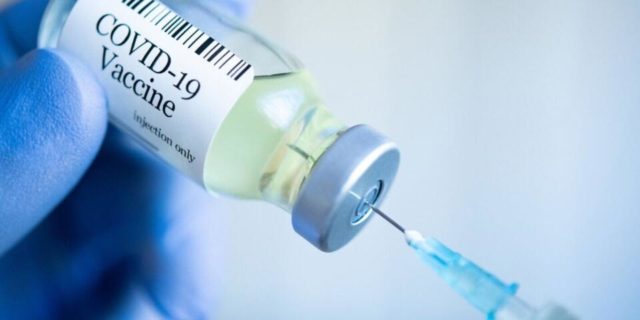People who develop Covid-19 just after receiving a Covid-19 vaccine are likely to have already contracted the virus at the time of vaccination, according to Wits University vaccinologist Professor Shabir Madhi.
PEOPLE who develop Covid-19 just after receiving a Covid-19 vaccine are likely to have already contracted the virus at the time of vaccination, according to Wits University vaccinologist Professor Shabir Madhi.
Madhi was speaking during an interview with 702’s Bongani Bingwa which sought to provide the public with a better understanding of Covid-19 vaccines among other areas of interest.
He said that during a vaccine trial at the peak of the outbreak, 15% of completely asymptomatic individuals were unknowingly actually infected with the virus at the time that they received the vaccine.
“So what’s happening in South Africa, especially in Gauteng over the past few weeks, is that many individuals who have gotten vaccinated, were actually already infected with the virus without realising it. And some of them went on to develop Covid a few days later.
“It was not because the vaccines were causing Covid, but rather because it was a natural progression of an infection that they were already harbouring at the time when they presented for vaccination.”
Madhi said the vaccine itself would not have much impact on the actual cause of infection.
“Those that are already infected, it’s not going to attenuate (reduce) the illness, and neither is it going to cause the illness to become more severe.”
He further explained that the virus usually incubates for about three to five days before an individual becomes symptomatic.
“All of these cases that are occurring in the first week or so after vaccination are actually already infected with the virus at the time when they presented for the vaccine and that’s just a natural progression of the clinical course of the infection in those individuals.”
Madhi said South Africa’s focus right now in using the Johnson & Johnson and Pfizer vaccines was not about preventing infections, but rather about preventing severe disease and death.
“For the Delta variant, the J&J vaccine has at least about 85% protection, and for the Pfizer vaccine probably above 90% and close to 96% after the second dose.”
He explained that with regard to the double dose Pfizer vaccine, data had revealed that extending the interval between jabs to eight weeks rather than two to three weeks was more effective.
“If you put the vaccine close together, the second dose doesn’t actually do much because the immune system hasn’t really primed itself to respond to the second dose.”
Madhi said it was “refreshing” to see the country turn the corner with regard to the momentum of the vaccination roll-out.
“The most important thing now is to keep this momentum going, at least through to the end of this year and at least until we get all of the high-risk individuals, the adults, particularly, vaccinated.”








